Related Research Articles
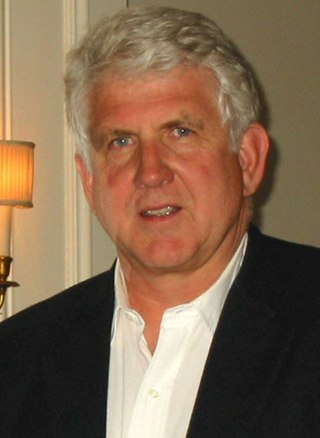
Robert Melancton Metcalfe is an American engineer and entrepreneur who helped pioneer the Internet starting in 1970. He co-invented Ethernet, co-founded 3Com, and formulated Metcalfe's law, which describes the effect of a telecommunications network. Since January 2011, he has been professor of innovation and entrepreneurship at The University of Texas at Austin. He is also the Murchison Fellow of Free Enterprise.

Akamai Technologies, Inc. is an American content delivery network (CDN), cybersecurity, and cloud service company, providing web and Internet security services. Akamai's Intelligent Edge Platform is one of the world's largest distributed computing platforms. The company operates a network of servers worldwide and rents capacity of the servers to customers wanting to increase efficiency of their websites by using Akamai owned servers located near the user. When a user navigates to the URL of an Akamai customer, their browser is directed by Akamai's domain name system to a proximal edge server that can serve the requested content. Akamai's mapping system assigns each user to a proximal edge server using sophisticated algorithms such as stable matching and consistent hashing, enabling more reliable and faster web downloads. Further, Akamai implements DDoS mitigation and other security services in its edge server platform. On the 25th year of creation of Akamai's edge, its role in the evolution of content delivery, edge computing, edge security services, overlay networking, IP geolocation and other internet technologies was noted in an episode of ACM SIGCOMM's Networking Channel.
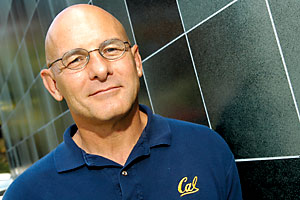
David Andrew Patterson is an American computer pioneer and academic who has held the position of professor of computer science at the University of California, Berkeley since 1976. He announced retirement in 2016 after serving nearly forty years, becoming a distinguished software engineer at Google. He currently is vice chair of the board of directors of the RISC-V Foundation, and the Pardee Professor of Computer Science, Emeritus at UC Berkeley.

Charles Eric Leiserson is a computer scientist, specializing in the theory of parallel computing and distributed computing, and particularly practical applications thereof. As part of this effort, he developed the Cilk multithreaded language. He invented the fat-tree interconnection network, a hardware-universal interconnection network used in many supercomputers, including the Connection Machine CM5, for which he was network architect. He helped pioneer the development of VLSI theory, including the retiming method of digital optimization with James B. Saxe and systolic arrays with H. T. Kung. He conceived of the notion of cache-oblivious algorithms, which are algorithms that have no tuning parameters for cache size or cache-line length, but nevertheless use cache near-optimally. He developed the Cilk language for multithreaded programming, which uses a provably good work-stealing algorithm for scheduling. Leiserson coauthored the standard algorithms textbook Introduction to Algorithms together with Thomas H. Cormen, Ronald L. Rivest, and Clifford Stein.
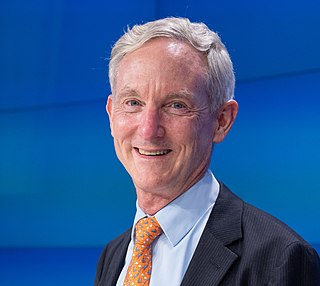
Frank Thomson "Tom" Leighton is the CEO of Akamai Technologies, the company he co-founded with the late Daniel Lewin in 1998. As one of the world's preeminent authorities on algorithms for network applications and cybersecurity, Dr. Leighton discovered a solution to free up web congestion using applied mathematics and distributed computing.

David A. Bader is a Distinguished Professor and Director of the Institute for Data Science at the New Jersey Institute of Technology. Previously, he served as the Chair of the Georgia Institute of Technology School of Computational Science & Engineering, where he was also a founding professor, and the executive director of High-Performance Computing at the Georgia Tech College of Computing. In 2007, he was named the first director of the Sony Toshiba IBM Center of Competence for the Cell Processor at Georgia Tech. Bader has served on the Computing Research Association's Board of Directors, the National Science Foundation's Advisory Committee on Cyberinfrastructure, and on the IEEE Computer Society's Board of Governors. He is an expert in the design and analysis of parallel and multicore algorithms for real-world applications such as those in cybersecurity and computational biology. His main areas of research are at the intersection of high-performance computing and real-world applications, including cybersecurity, massive-scale analytics, and computational genomics. Bader built the first Linux supercomputer using commodity processors and a high-speed interconnection network.
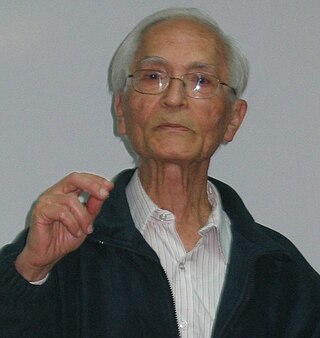
Jacob Ziv was an Israeli electrical engineer who, along with Abraham Lempel, developed the LZ family of lossless data compression algorithms.
Judith "Judy" L. Estrin is an American entrepreneur, business executive, and philanthropist. Estrin worked with Vinton Cerf on the Transmission Control Protocol project at Stanford University in the 1970s. Estrin is an entrepreneur who co-founded eight technology companies. She was the chief technology officer of Cisco Systems from 1998 to 2000. She is currently CEO of JLABS, LLC, a privately held company focused on furthering innovation in business, government, and nonprofit organizations.

The President's Council of Advisors on Science and Technology (PCAST) is a council, chartered in each administration with a broad mandate to advise the president of the United States on science and technology. The current PCAST was established by Executive Order 13226 on September 30, 2001, by George W. Bush, was re-chartered by Barack Obama's April 21, 2010, Executive Order 13539, by Donald Trump's October 22, 2019, Executive Order 13895, and by Joe Biden's February 1, 2021, Executive Order 14007.

Werner Hans Peter Vogels is the chief technology officer and vice president of Amazon in charge of driving technology innovation within the company. Vogels has broad internal and external responsibilities.
Ronald Baecker is an Emeritus Professor of Computer Science and Bell Chair in Human-Computer Interaction at the University of Toronto. He was the co-founder of the Dynamic Graphics Project, and is the founder of the Knowledge Media Design Institute (KMDI) and the Technologies for Aging Gracefully Lab (TAGlab). He is the author of Computers and Society: Modern Perspectives, published by Oxford University Press in 2019, co-author of The COVID-19 Solutions Guide published in 2020, and author of the latest independently published Digital Dreams Have Become Nightmares: What We Must Do in 2021.
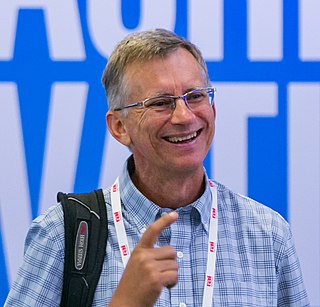
Larry L. Peterson is an American computer scientist, known primarily as the Director of the PlanetLab Consortium, co-author of the networking textbook "Computer Networks: A Systems Approach," and for his research on the TCP Vegas congestion control algorithm and the x-kernel operating system.

M. Brian Blake is an American computer scientist/software engineer and the eighth president of Georgia State University. He was previously the executive vice president for academic affairs and provost at George Washington University; executive vice president of academic affairs and the Nina Henderson Provost at Drexel University; the dean of the graduate school and vice provost for academic affairs at the University of Miami; an associate dean for research and professor at the College of Engineering at the University of Notre Dame; and department chair and professor of computer science at Georgetown University.
Ramesh Sitaraman is an Indian American computer scientist known for his work on distributed algorithms, content delivery networks, streaming video delivery, and application delivery networks. He helped build the Akamai content delivery network, one of the world's largest distributed computing platforms. He is currently in the computer science department at University of Massachusetts Amherst.

Katherine "Kathy" Anne Yelick, an American computer scientist, is the Vice Chancellor for Research and the Robert S. Pepper Professor of Electrical Engineering and Computer Sciences at the University of California, Berkeley. She is also a faculty scientist at Lawrence Berkeley National Laboratory, where she was Associate Laboratory Director for Computing Sciences from 2010-2019.

José Luis Moreira da Encarnação is a Portuguese computer scientist, Professor Emeritus at the Department of Computer Science of the Technische Universität Darmstadt in Germany and a senior technology and innovation advisor to governments, multinational companies, research institutions and organizations, and foundations. He is involved in the development of research agendas and innovation strategies for socio-economic development with a focus on emerging economies. He is also a member of the Topical Network Information and Communication Technology (ICT) and ICT-related activities of the German National Academy of Science and Engineering (acatech) and the German Berlin-Brandenburg Academy of Sciences and Humanities (BBAW). He is an elected member of the ACM SIGGRAPH Academy (USA).
Latifur Khan joined the University of Texas at Dallas in 2000, where he has been conducting research and teaching as a Professor in the Department of Computer Science.
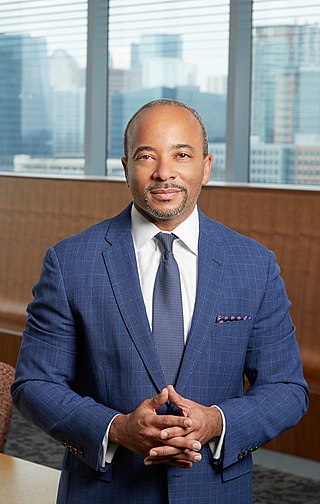
Raheem Beyah is an American computer engineer, researcher, and educator. As of January 15, 2021 he is the Dean of the College of Engineering and Southern Company Chair at the Georgia Institute of Technology. Prior to becoming the Dean, he was the vice president for Interdisciplinary Research and the Motorola Foundation Professor and the executive director of Georgia Tech's online masters in cyber security program. Beyah is also the co-founder and chair of industrial security company Fortiphyd Logic, Inc.
Hai (Helen) Li is a Chinese-American electrical and computer engineer known for her research on neuromorphic engineering, the development of computation systems based on physical artificial neurons, and on deep learning, techniques for using deep neural networks in machine learning. She is Clare Boothe Luce Professor of Electrical and Computer Engineering at Duke University.
References
- ↑ "Bruce Maggs". cseweb.ucsd.edu. Retrieved 2019-03-01.
- ↑ "AKAMAI TECHNOLOGIES, INC. PROSPECTUS". SEC. 1999-11-01. Retrieved 2019-03-01.
- ↑ aanghel (2018-03-26). "Bruce Maggs to give keynote "Internet at the Speed of Light" at HPSR'18!". IEEE International Conference on High Performance Switching and Routing. Retrieved 2019-03-01.
- ↑ "Bruce Maggs | Scholars@Duke". scholars.duke.edu. Retrieved 2019-03-01.
- ↑ Dear, Brian (2017). The Friendly Orange Glow: The untold story of the PLATO System and the dawn of cyberculture. Pantheon Books. pp. 186–187. ISBN 978-1-101-87155-3.
- ↑ 2018 ACM Fellows Honored for Pivotal Achievements that Underpin the Digital Age, Association for Computing Machinery, December 5, 2018